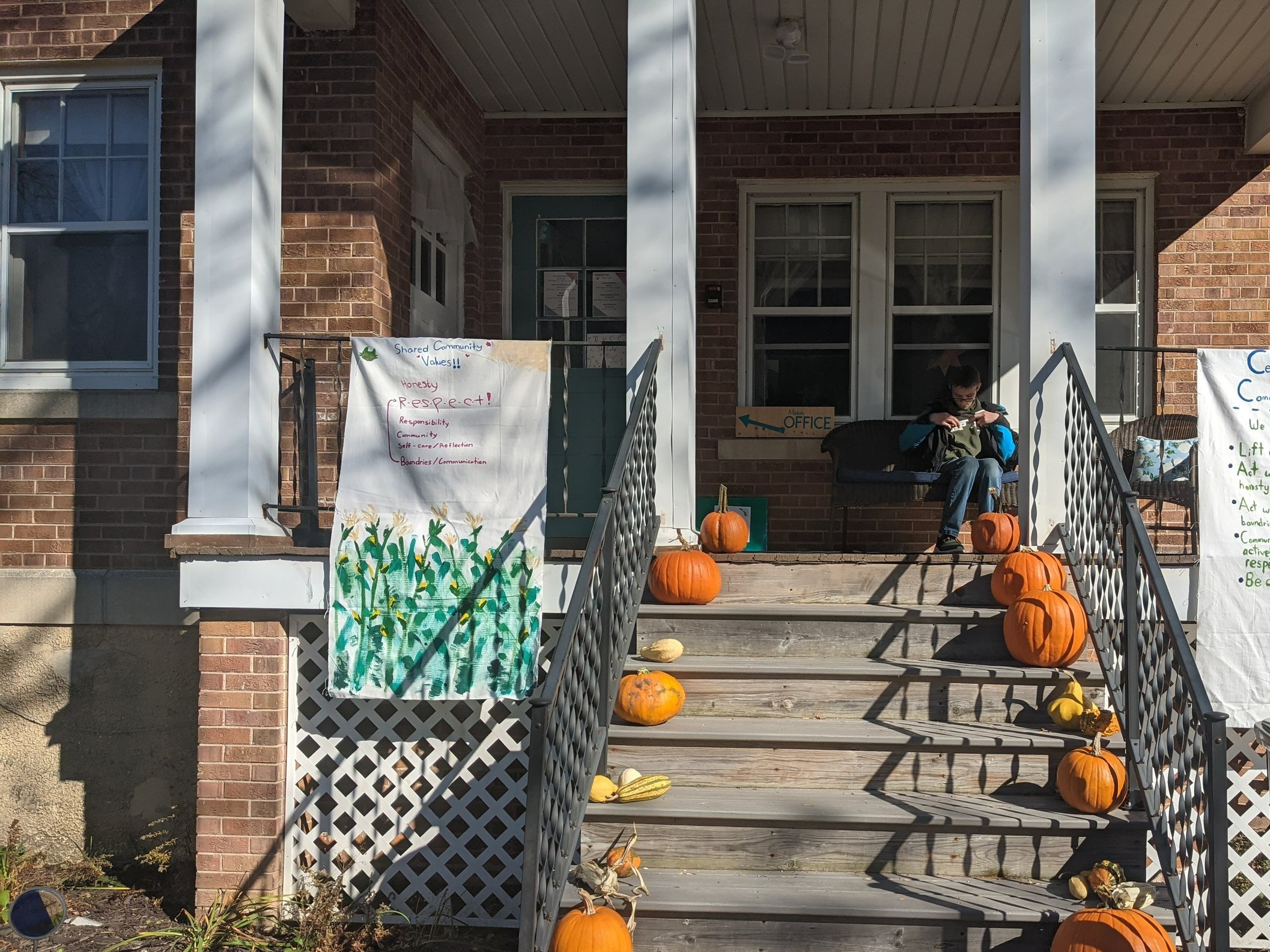
Conceptual Framework
The Creation of a Sustainable Education
At the core of all that we do, and related to the three pillars of thinking, feeling, and willing, lies the principle of sustainable education:
A change of educational culture towards the realization of human potential and the interdependence of social, economic, and ecological well-being, which can lead to transformative learning.
Thinking
Integrated Curriculum
Helping students to understand the complexity and interconnectedness of each subject and the world as a whole.
Teachers from different subject areas work together to create curriculum that is interrelated across disciplines.
Learning Community
Teachers and students come together to explore ideas and learn and in community.
Collaboration among teachers and students in developing projects to explore subject matter.
Create learning experiences beyond the classroom through community partnerships.
Projects & Experience
In project based learning students learn by actively engaging in real-world and personally meaningful projects.
Through these self-directed projects, students deepen their knowledge and understanding of subjects covered in the class.
Through experiences of travel, students learn about themselves and the world around them.
Knowledge Based Learning
Focusing deeply on specific content areas to gain a broader understanding of subject matter.
Learning that revolves around the knowledge that the student already has, and the understanding that they are going to achieve.
Meeting each unique student where they are and working with them to gain understanding.
Growth Mindset
A growth mindset is the belief that intelligence and wisdom can be developed and evolve continuously. Students with a growth mindset understand they can gain depths of knowledge through hard work, through working with change and their learning edge, the use of positive strategies, and support from others.
Teachers and all staff facilitate integrated growth in specific areas related to accountability, discipline, resilience, flexibility, self-awareness, self-reflection, emotional regulation and meaningful connections through academic and community opportunities.
Feeling
Mindfullness
Through this practice students will develop awareness of and ability to navigate the full range of human emotions, set and achieve positive goals, demonstrate compassion for others, establish and maintain authentic relationships, and make empowered choices.
Students are supported as they develop emotional regulation, understanding, and making choices from the place of intention.
A mindfulness pathway will promote healthy skills and safe learning environments to help students develop multi-faceted social and emotional intelligences that will guide their decision making and behavior towards growth.
Resilience
Resilience is the set of characteristics that inspire a child’s sense of worth, their strength and perseverance to move through challenges they will inevitably face throughout their education and adult life.
The school community will empower students by authentically validating their successes, securing their belonging in the student community, and reinforcing their contributions to the World.
Inclusive Engagement
Recognizing, including, and meeting each individual student where they are while celebrating all dimensions of the whole person no matter their identity.
Teachers and staff will work collaboratively with all students effectively teaching and modeling appropriate strategies to help harmonize and deepen school community relationships and connections.
Awareness, Risk Assessment & Active Hope
Through awareness building students gain the habit of observing personal thoughts, habits, and actions as if they were watching themself and understanding the consequences to their behaviors and aligning their actions with who they want to be and where they want to go in life.
Through the support of educators and care groups, students learn to take healthy risks to enable change. They are guided through healthy risk reflection as their risk taking changes and as their identities develop over the course of their time at the school.
Students develop the practice of Active Hope in which the student and their school community believes the hoped for outcome is reasonably likely to happen.
Trauma Sensitivity
The school works to understand the prevalence and impact of toxic stress on youth and those who care for them.
The school community infuses the values of safety, trustworthiness, choice, collaboration, and empowerment into various aspects of their existing equitable multi-level system of support. This infusion is what we call the trauma-informed lens.
Willing
Restorative Justice & Empathy
The school community focuses on mediation and agreement rather than punishment. It empowers students to resolve conflicts on their own and in small groups; practicing inclusion, bringing affected parties together, and making amends.
Empathy is the ability to understand and share the feelings of another. Within this empathy students will strive to create honest boundaries, brave spaces, while respecting the boundaries that others have defined for themselves.
Student Engaged Change
Students practice social engagement to share ideas, critique, and implement change. The students are actively working to address current affairs and implementation of direct action to address issues.
Students enable change by engaging in projects that are of interest to the student. Students will be encouraged to work within their school community and with community partners.
Service Learning
Students participate in a combination of volunteering, activism, and civic engagement to the benefit of others and the community to enrich the goals of their education.
Students will be mentored to develop this service based learning into apprenticeships, internships and employment that brings them closer to their actualized post-school experiences.
Social Practice
Social practice is a theory that seeks to determine the link between practice and context within social situations. It often encompasses the commitment to social change and primarily takes on the forms of personal inquiry and a socially engaged activity.
Whether personal and/or collaborative, students will address specialized interests, subjects and/or social issues using a cross discipline approach to internalize ideas and concepts and deliver them back out to the world.
Self-Actualization
Students will live into their fullest potential and capabilities; as growth-motivated students, they will inherently see themselves as whole beings contributing to the world they help define.
Each individual will be held holistically as part of the school community.
